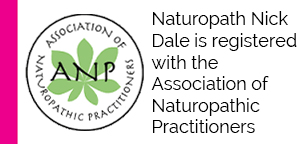 Isolating and correcting the underlying cause of Chronic Fatigue is key in successful treatment.
Isolating and correcting the underlying cause of Chronic Fatigue is key in successful treatment.
In my practice, the scale of Chronic Fatigue is hugely evident. As well as generalized tiredness, it is the most common thing that people come to see me about.
Through Iridology testing I isolate the underlying cause predisposing a person to Chronic Fatigue. In the majority of cases this is due to a rundown nervous system. In addition to this there are other factors which may need to be taken into account, such as adrenal exhaustion, thyroid function, and a history of glandular fever, among others.
Once the factors predisposing a person to Chronic Fatigue are identified, natural remedies are then applied to address the underlying problem.
 Chronic Fatigue is a modern day disease, which opens the door to other illnesses
Chronic Fatigue is a modern day disease, which opens the door to other illnesses
When fatigue starts, other ill health develops from that, such as anxiety, depression, headaches, migraines, digestive disorders, immune system function, and much more. If we have vitality the body has a chance to heal and operate optimally.
The amazing thing is – contrary to popular belief that nothing much can be done to help – energy and vitality can often be restored relatively easily
Click here for Causes of Chronic Fatigue
Click here for Case Examples
Consultations
The goal of a consultation is to:
Understand the causes of the symptoms you are experiencing, such as chronic fatigue, insomnia, mental tiredness, or low energy levels.
From there I will recommend a tailored program of natural medicine, designed to help control and treat naturally the causes of the symptoms you are experiencing.
I will also make recommendations for y healthy lifestyle guidelines, such as basic dietary steps.
In treating the underlying causes many clients experience improvements in other areas of their health too, which are often linked, such as poor memory, lack of motivation, muscular pains, headaches, digestive difficulties, anxiety, stress and depression.
Call 01379 308707
All enquiries are very welcome, and consultations can be booked in Eye, Suffolk. Clients are welcome to call at any time for questions or support. Initial Naturopathy consultations (which include an iridology assessment) are £35, please allow 35-60 minutes for your consultation.

Causes of Chronic Fatigue
Having established that there is no physical problem, many are told to get more sleep, or take a holiday and rest, which really isn’t the solution. This leaves people with their work performance flagging and barely enough energy to get through the day, let alone spend quality time with family and friends.
“I sleep for nine hours and get a good night’s sleep so why I am exhausted when I wake up and then tired throughout the day?”
There are really only a handful of causes for chronic fatigue and low energy levels, which I have outlined below. These do not include such things as major illnesses or tiredness caused by serious injuries or health issues, or pregnancy.
The most common causes come down to the following:
1) The nervous system
This links the body’s systems and it is extremely common for this to become rundown over time for various reasons, typically resulting in the onset and gradual worsening over time of fatigue. A rundown nervous system if untreated can lead to other conditions in the future. When the nervous system is rundown this can also contribute to depression and anxiety which can further contribute to fatigue.
2) Stress
Which wears down the body’s reserves and results often in low energy and vitality.
3) Lymphatic congestion
Where there is a history of lymphatic congestion, such as resulting from glandular fever or tonsillitis, fatigue is a common symptom.
4) Endocrine and glandular function
This includes such essential things as thyroid, adrenals, blood sugar control and reproductive, hormonal balance.
Once the cause is identified, natural therapies are then applied to address the specific area.
Case Examples
The most common thing I treat is low energy and vitality – and this ranges from Chronic Fatigue through to general tiredness and association symptoms. Here are some examples to demonstrate how this can manifest and how the program worked.
Chronic Fatigue
“I’m nervous and excited at the same time as I think I’m ready to start looking for work again. Thank you for taking the time to help me, you were my last hope and I was really beginning to think there was no answer.”
Matthew at the age of 32 was diagnosed with chronic fatigue by a doctor. He was very tired, achy, mentally fatigued and unable to work.
The affects penetrated every area of his life. He was very concerned when he contacted me, as he couldn’t afford for the condition to continue to affect his life in this way.
He followed a three week program, which was followed up with a simple maintenance.
Tiredness, Anxiety & Irritability
“This has been the best week I’ve had in three years. I haven’t had any anxiety, no speeding feeling at all. I am so positive and I’m much happier. I have more energy overall.”
She later wrote back saying,
“I have finished the program, I had the best month in years. Completely anxiety free, sleeping well, and very happy.”
Sophie, a 34 year old mother of a two and three year old, approached us with severe anxiety and tiredness. The anxiety was diagnosed by a physician. Also she complained of poor sleep, panic attacks, extreme irritability and a feeling like she had “drunk 50 cups of coffee”.
She was prescribed an antidepressant by the doctor. She also complained of irregular menstrual cycles and a general feeling of exhaustion and being completely rundown and unable to cope.
A simple program of nutritional supplements and homeopathics was prescribed. Since this she is completely anxiety free and has been able to maintain this for over a year with a very simple maintenance supplement.
Low Energy Levels & High Stress
“There is good news and good news! Definitely feel brighter – lighter – and more in control. Thank you. All this with an extremely sick child for the last week with lack of sleep! Can’t wait for normal times!
Do thank you enormously as doctor was trying to put me onto antidepressants – the answer for everything of course! Not sure whether its the diet, the minerals, etc, combination of both or just such personal care from you! What a combination.”
She later said: “Energy scale of 7 out of 10. When we started it must have been 1. Thank you very much – a couple of weeks ago I didn’t have the energy to book a holiday let alone take my two boys on my own.”
Joanne, 43, mother of two young boys and a Multiple Sclerosis sufferer, wrote to us with very low energy levels and complaining of high stress levels.
Fatigue, Depression and Physical Exhaustion
“This last week I went the entire week without my medication and in fact I have not felt this good in 12 to 15 years. I feel and act that much younger and that is all very much appreciated.”
Brian, 47, a senior executive in an international corporation, initially contacted me complaining of fatigue, depression and physical exhaustion. This was frustrating for Brian as he used to run 100 miles a week for exercise and found himself unable to do this at all. He was also complaining of extremely stiff muscles and feeling very low mentally.
I recommended a program for Brian that suited his specific needs. Now he has come off the medication he had been on for years and is completely renewed; this was after three weeks on the program. He is also now running as we fixed up his muscles problems as well as his tiredness.
Debilitating Tiredness Despite a Good Night’s Sleep
“I have finished the remedies and still have some more of the vitamins to take. I feel much better now. I have more energy and do not feel sleepy all of the time – its great! Thank you for your help – I’ll recommend your program to anybody who is feeling as drained as I was. If I need a repeat in six months time I’ll let you know.”
Julian, 38, an expatriate businessman, contacted me because of always being exhausted no matter how much sleep he had.
Low Energy Affecting Work Performance
Australia’s Channel Seven ran a feature on the subject of tiredness and fatigue, focusing on the success of the programs I recommend in my handbook. This was shown on the Today Tonight show. They interviewed Philippa Collie who had successfully followed the program.
Philippa is a school teacher who had tried everything to increase her energy levels, which were extremely low and affecting her ability to function in everyday life. She described to Channel Seven the results from the program as being: “Remarkable; I’m like a changed woman.”









